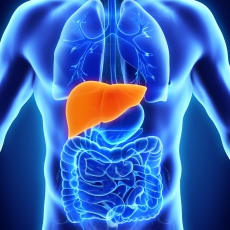General Hepatology is concerned with disorders of the liver, gall bladder and biliary ducts.

Your liver is one of the largest and most important organs in your body.
Where is my liver?
Your liver is behind the lower right part of your ribs. Your ribs help keep your liver from being injured.
What does my liver do?
Your liver is very important to your health.
Your liver:
Stores vitamins, sugars, fats and other nutrients from the food that you eat.
Builds chemicals that your body needs to stay healthy.
Breaks down harmful substances, like alcohol and other toxic (poisonous) chemicals.
Removes waste products from your blood.
Makes sure that your body has just the right amount of other chemicals that it needs.
Some of the most common diseases that can affect your liver include:
VIRAL HEPATITIS.
Hepatitis is a medical term that means "inflammation (swelling) of the liver." Viruses that attack the liver cause some of the most common forms of hepatitis. In most cases, your doctor can use a simple blood test to see if you have been exposed to one of these viruses.
CIRRHOSIS.
Cirrhosis is a medical term that means "scarring of the liver." When you have cirrhosis, large parts of your liver are damaged. Because it has been damaged, your liver may not work as well as it should.
LIVER CANCER.
Like many other body organs, your liver can get cancer. Liver cancer is a disease in which some of the cells in your liver begin to reproduce faster than they should. These cells form growths called tumors. Having hepatitis B or hepatitis C can increase your chances of getting liver cancer. Liver cancer can be deadly. If you find out that you have liver cancer, you need to get treated as soon as possible.
External resources
Read more





